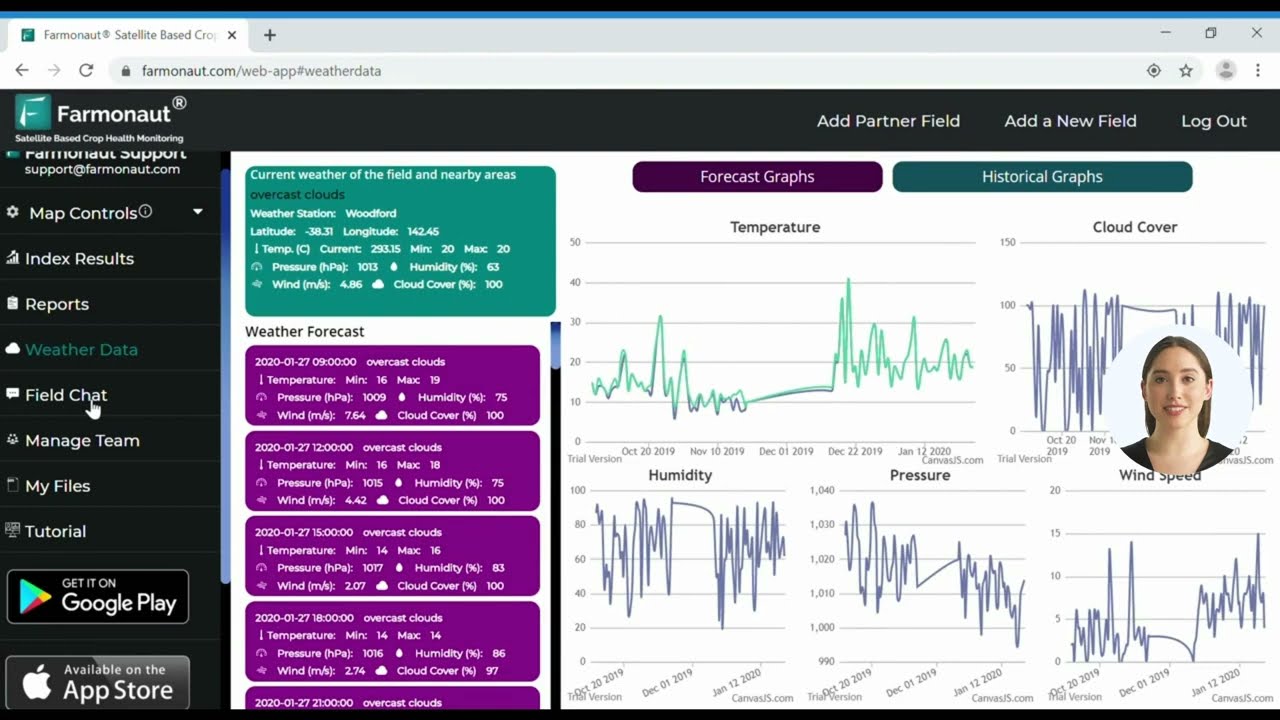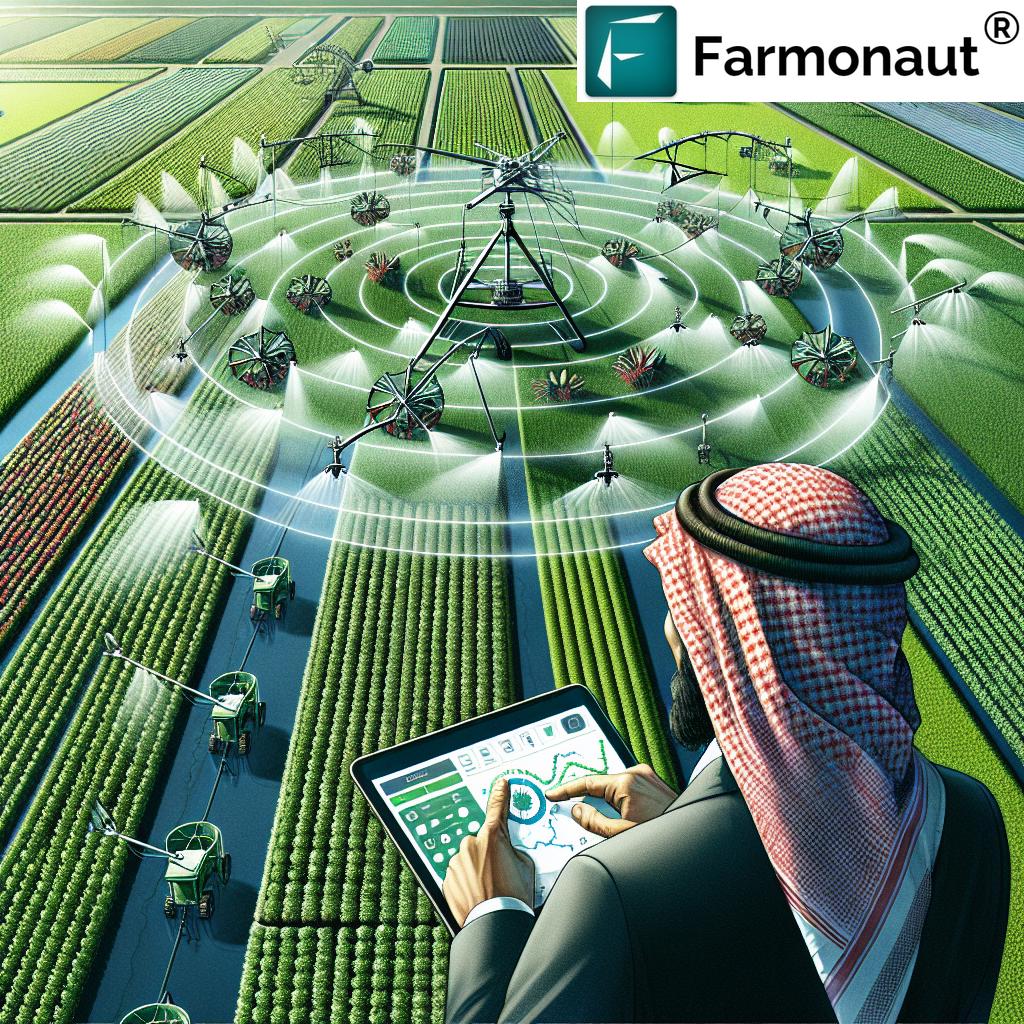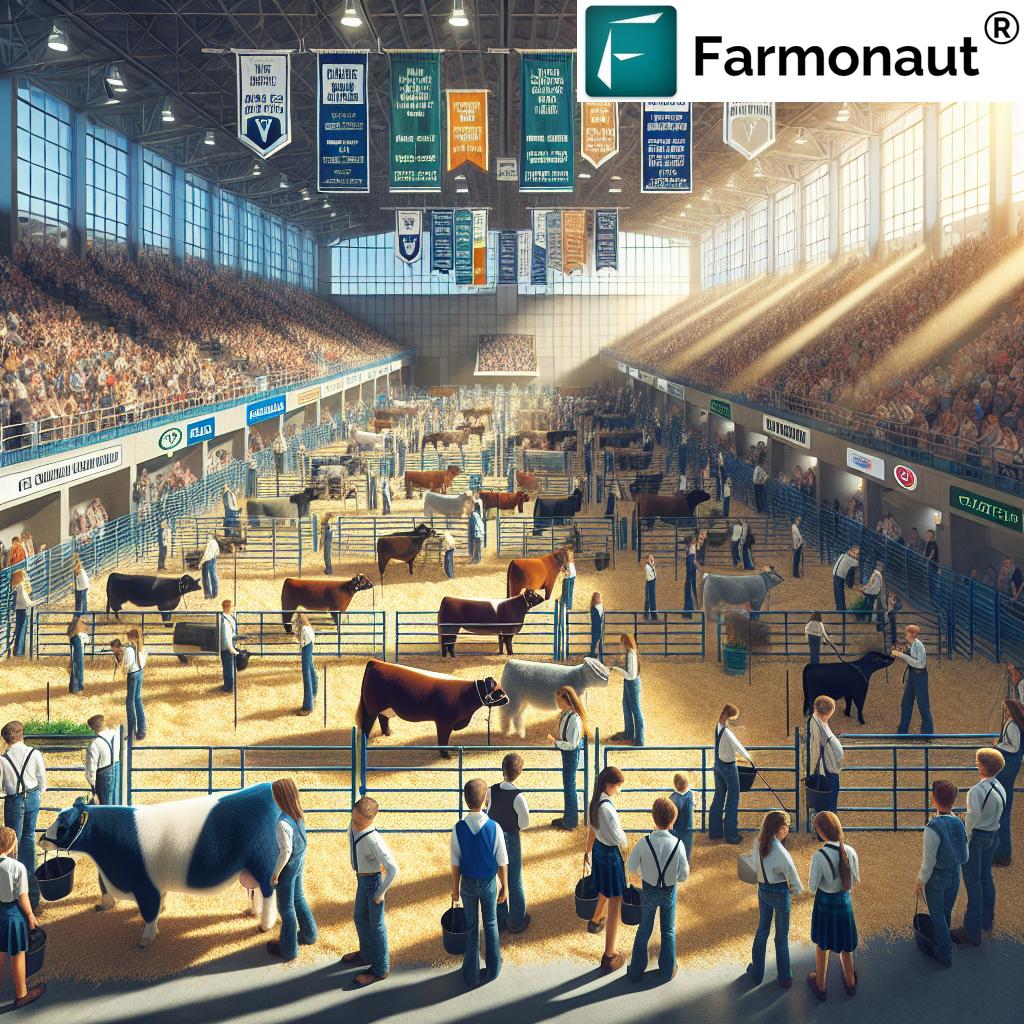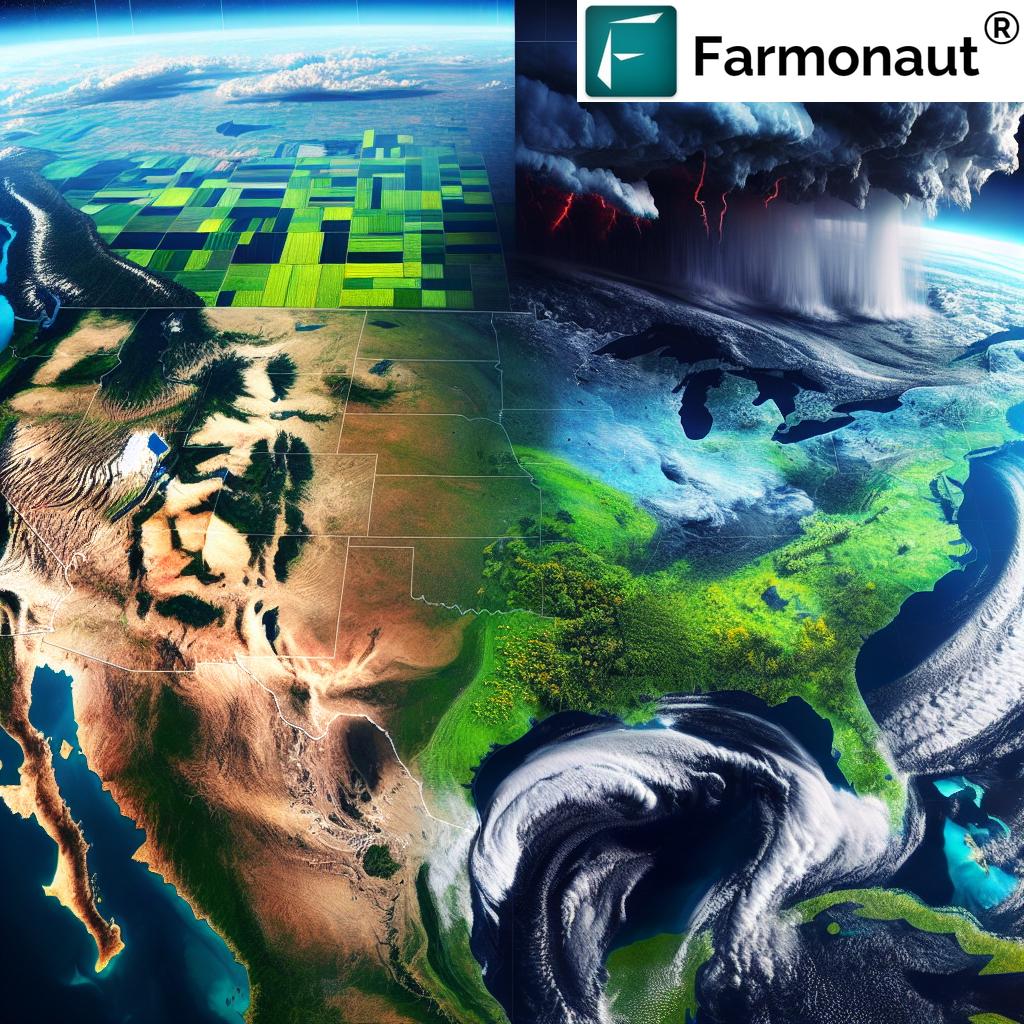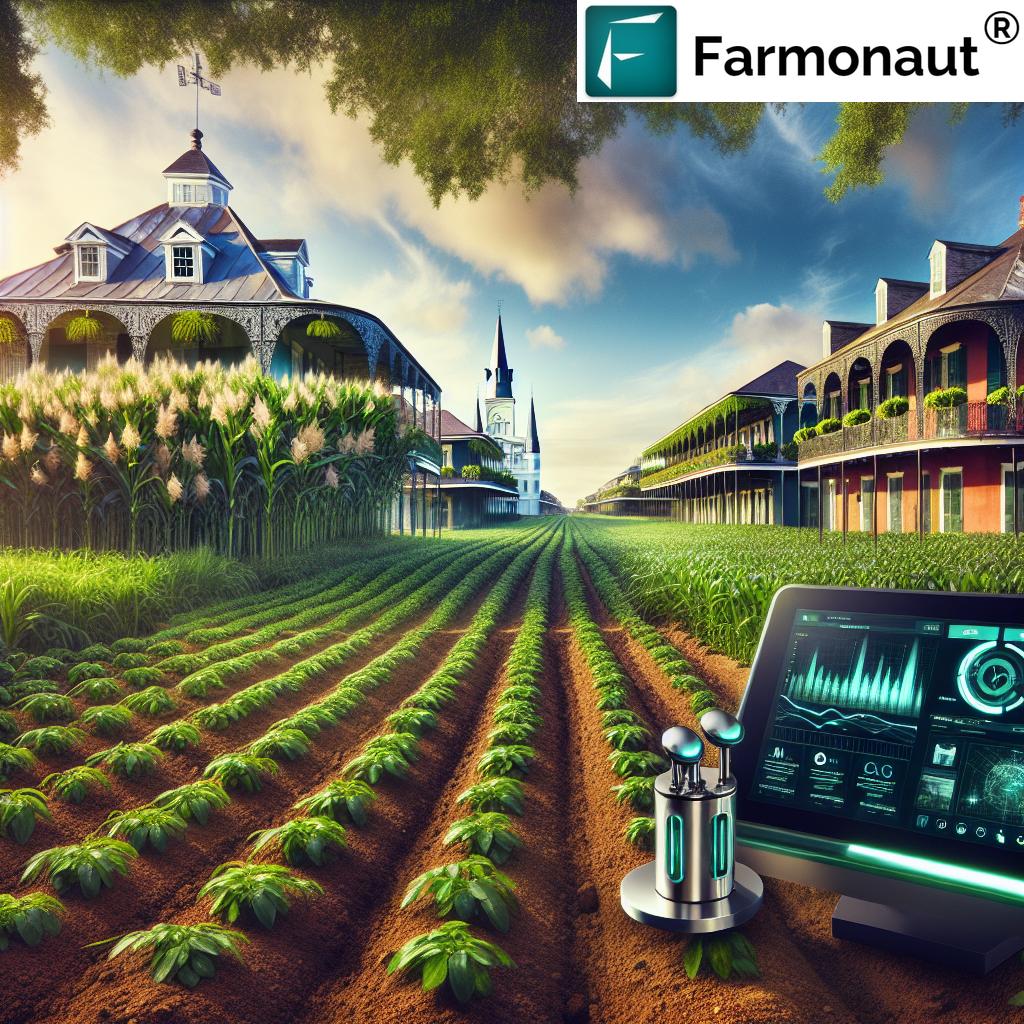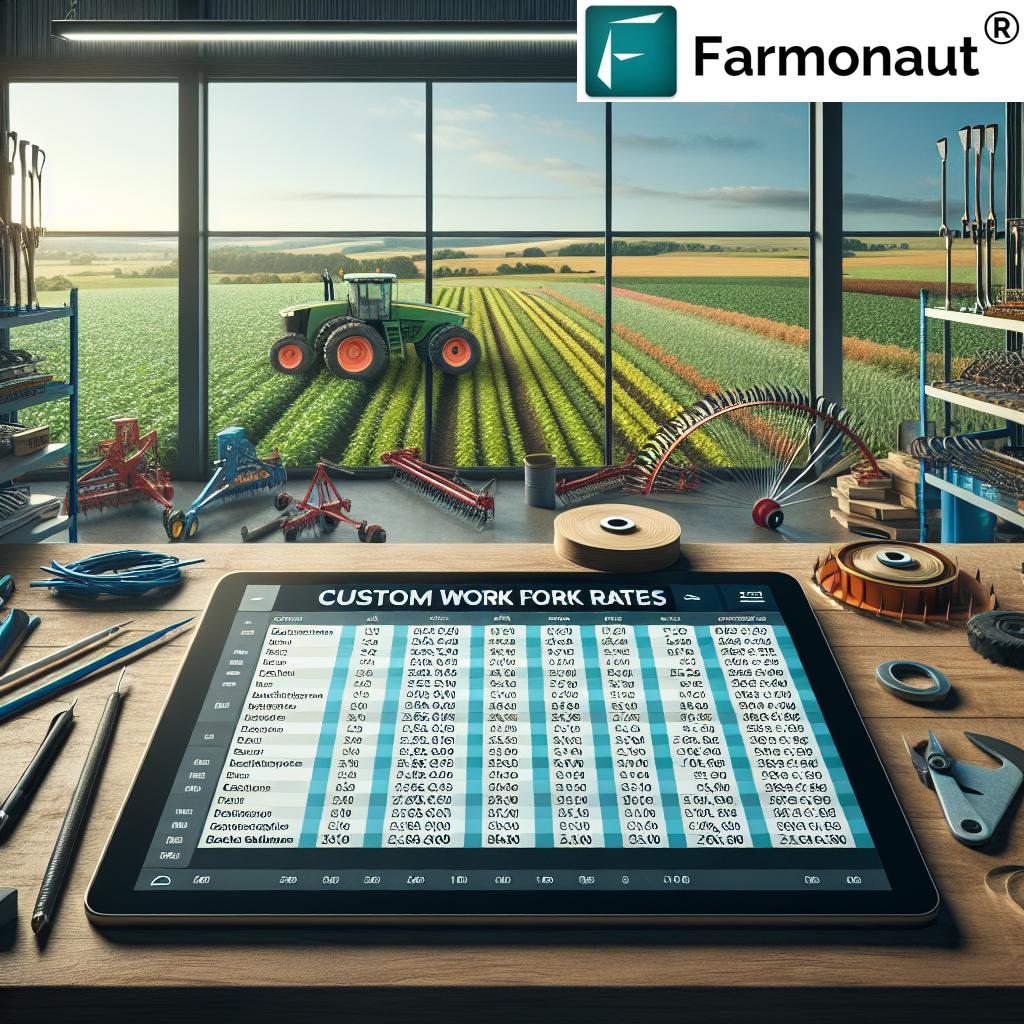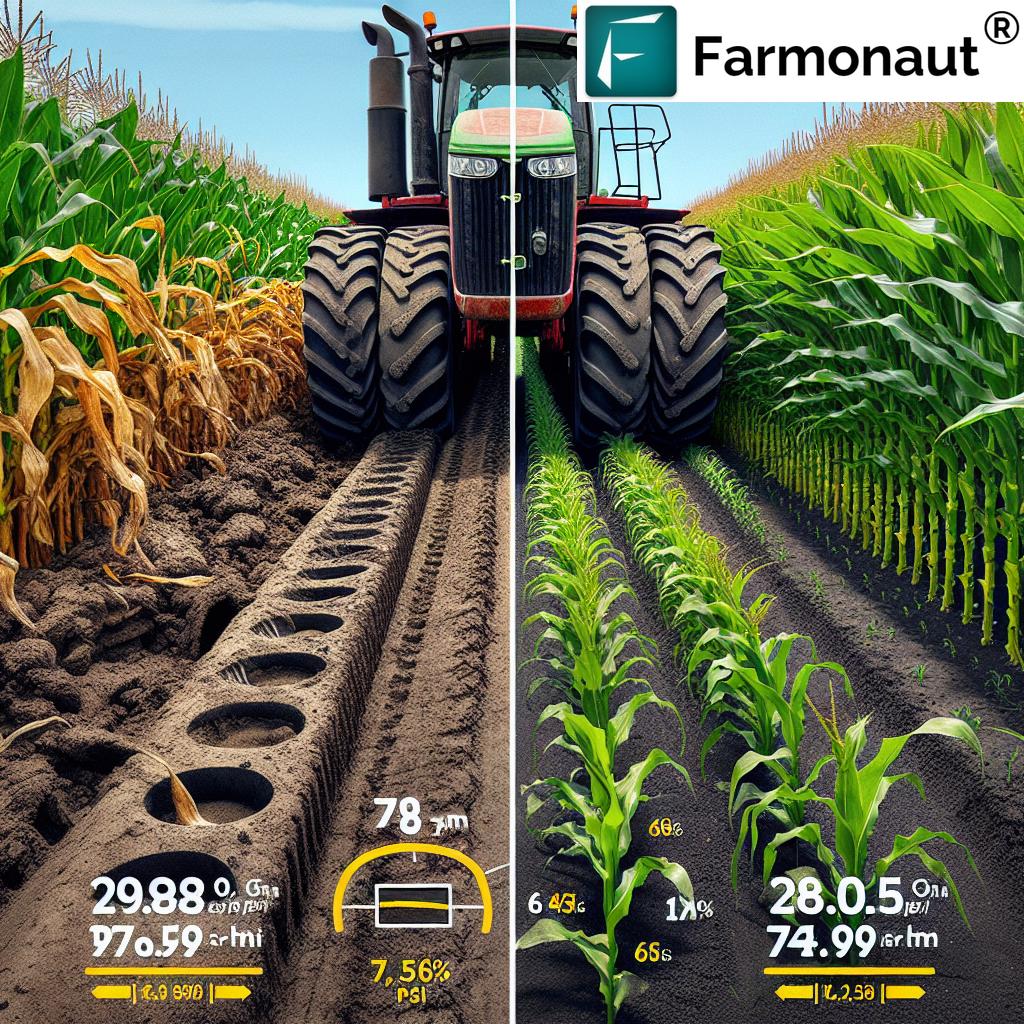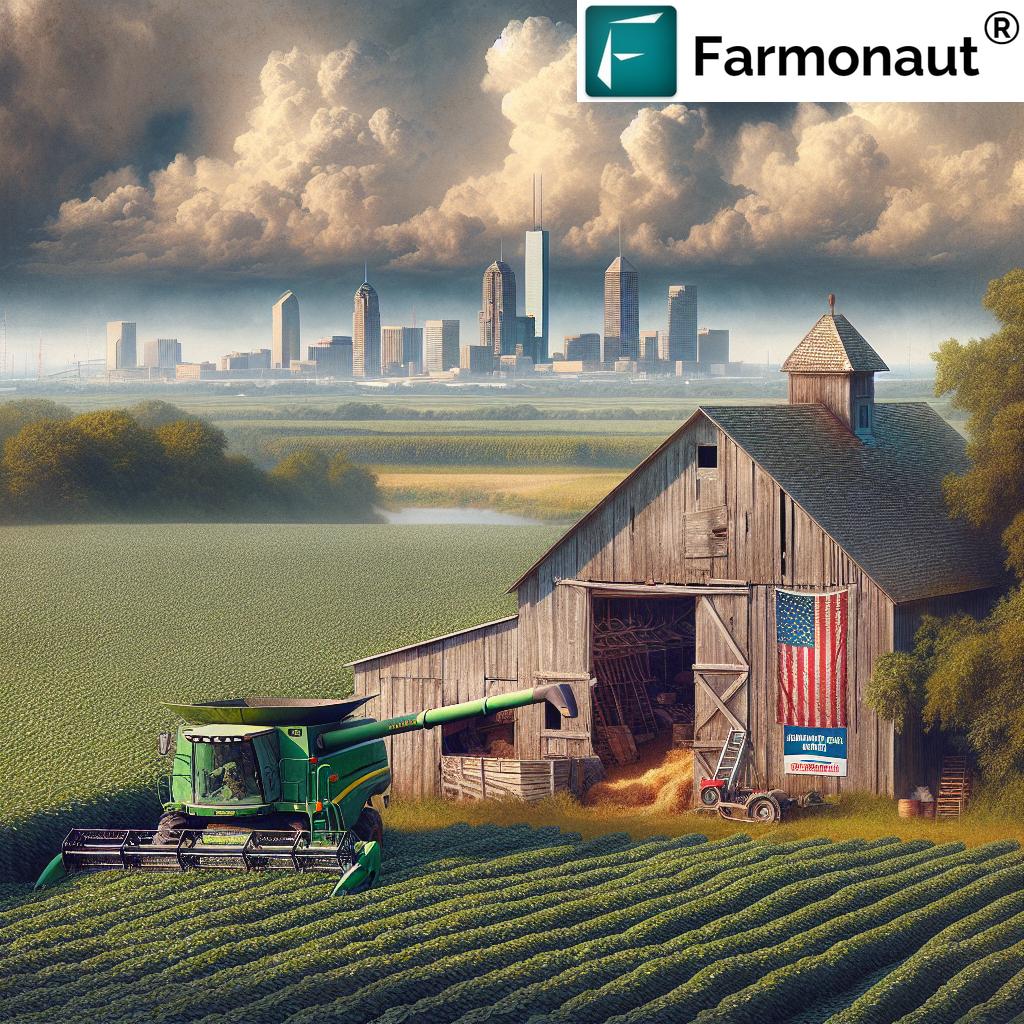Revolutionizing Agriculture: How AI and Smart Sensors are Transforming Farming in West Lafayette, Indiana
“Smart soil sensors in West Lafayette fields can gather data on 3+ vital parameters simultaneously for AI analysis.”
In the heart of America’s Midwest, a technological revolution is quietly transforming the landscape of agriculture. West Lafayette, Indiana, home to Purdue University, is at the forefront of this change, where artificial intelligence (AI) and smart sensors are reshaping the way we approach farming. As we delve into this exciting frontier, we’ll explore how these innovations are not just changing the face of agriculture but potentially solving some of the most pressing challenges in food production and environmental sustainability.
The Dawn of AI in Agriculture
Artificial intelligence in agriculture is no longer a futuristic concept; it’s a present reality that’s set to revolutionize crop management and precision farming technology. In West Lafayette, researchers at Purdue University are pioneering the development of smart soil sensors that are crucial for training AI systems. These advanced sensors are the eyes and ears of AI in the field, gathering vital data that forms the foundation of intelligent farming systems.
David Love, the Nick Trbovich professor of electrical and computer engineering at Purdue, paints a picture of the future: “Right now, a soil moisture sensor, you’d have about 1 of those per 100 acres. In the future, you might have hundreds, or even more, per acre.” This exponential increase in data points will provide an unprecedented level of insight into field conditions, enabling farmers to make decisions with pinpoint accuracy.
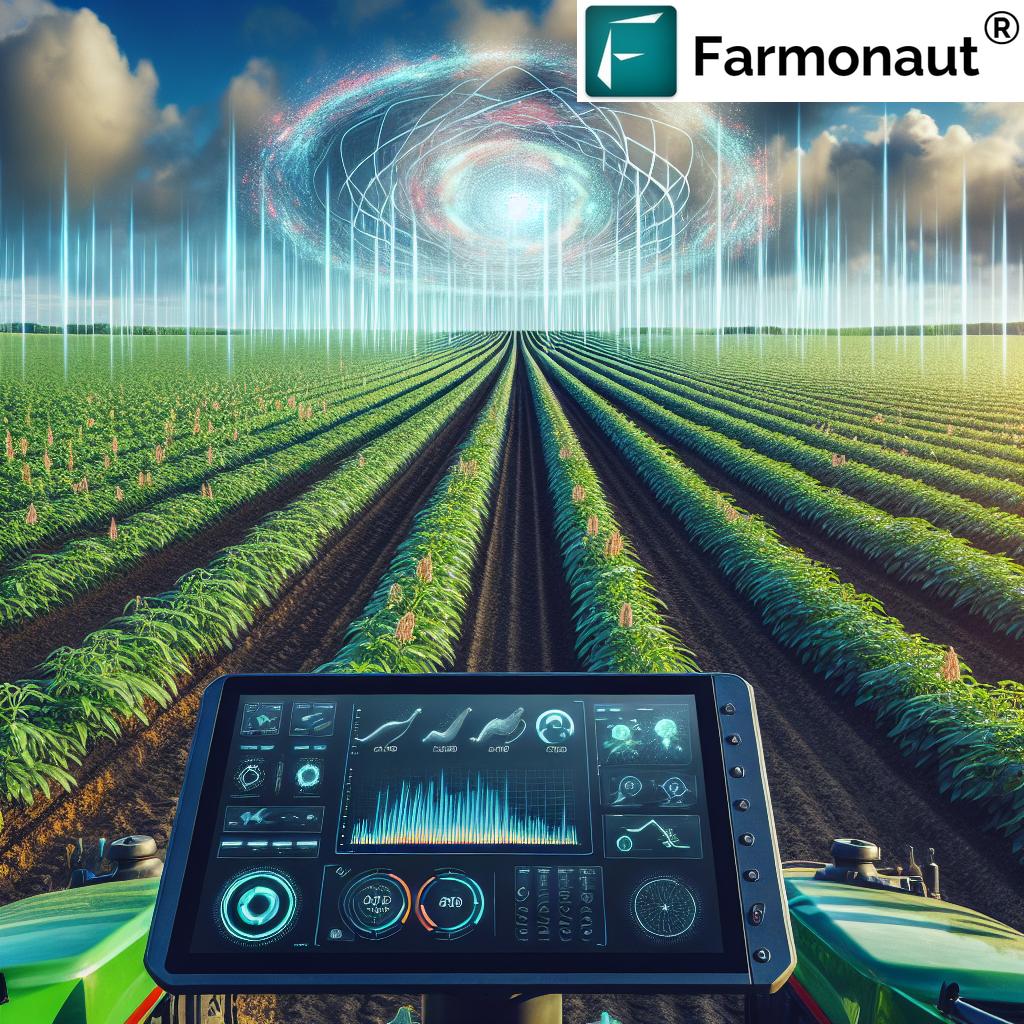
The Power of Smart Soil Sensors
Smart soil sensors are the unsung heroes of this agricultural revolution. These sophisticated devices can measure multiple parameters simultaneously, including:
- Soil moisture levels
- Nutrient content
- pH levels
- Temperature
- Electrical conductivity
By deploying these sensors in large numbers across fields, farmers can create a detailed, real-time map of their land’s health. This wealth of data is then fed into AI systems for analysis, providing insights that were previously unimaginable.
AI for Crop Management: A Game-Changer
The integration of AI for crop management is transforming how farmers approach their daily operations. Dennis Buckmaster, professor of agriculture at Purdue University, explains, “There’s so much data that sometimes we’re just buried in it, and we don’t have time to analyze it. That’s where we can leverage artificial intelligence.”
AI-powered systems can process millions of data points collected by smart sensors, identifying patterns and anomalies that might escape the human eye. This capability allows for:
- Early detection of crop diseases
- Precise identification of nutrient deficiencies
- Optimization of irrigation schedules
- Accurate prediction of harvest times
The result is a more efficient, productive, and sustainable farming operation.
Big Data in Farming: The Foundation of AI-Driven Agriculture
The concept of big data in farming is revolutionizing the agricultural landscape. In West Lafayette, the sheer volume of information collected by smart sensors is staggering. This data forms the bedrock upon which AI systems build their predictive models and decision-making algorithms.
“AI-powered systems in Indiana farms can process millions of data points daily to detect nutrient deficiencies and pests.”
By leveraging big data, farmers can:
- Identify trends in crop performance over time
- Correlate weather patterns with yield outcomes
- Optimize resource allocation based on historical data
- Predict market demands and adjust planting strategies accordingly
The power of big data lies not just in its volume, but in the insights it can provide when analyzed by sophisticated AI algorithms.
Precision Farming Technology: The Future of Agriculture
Precision farming technology is at the heart of the agricultural revolution in West Lafayette. By combining AI, smart sensors, and big data analytics, farmers can implement targeted interventions that maximize efficiency and minimize waste. This approach leads to:
- Reduced use of water, fertilizers, and pesticides
- Improved crop yields and quality
- Lower environmental impact
- Increased profitability for farmers
One of the key components of precision farming is efficient fertilizer application. AI systems can analyze soil nutrient levels and crop requirements to determine the exact amount of fertilizer needed in specific areas of a field. This precision not only reduces costs but also minimizes the environmental impact of excess fertilizer runoff.
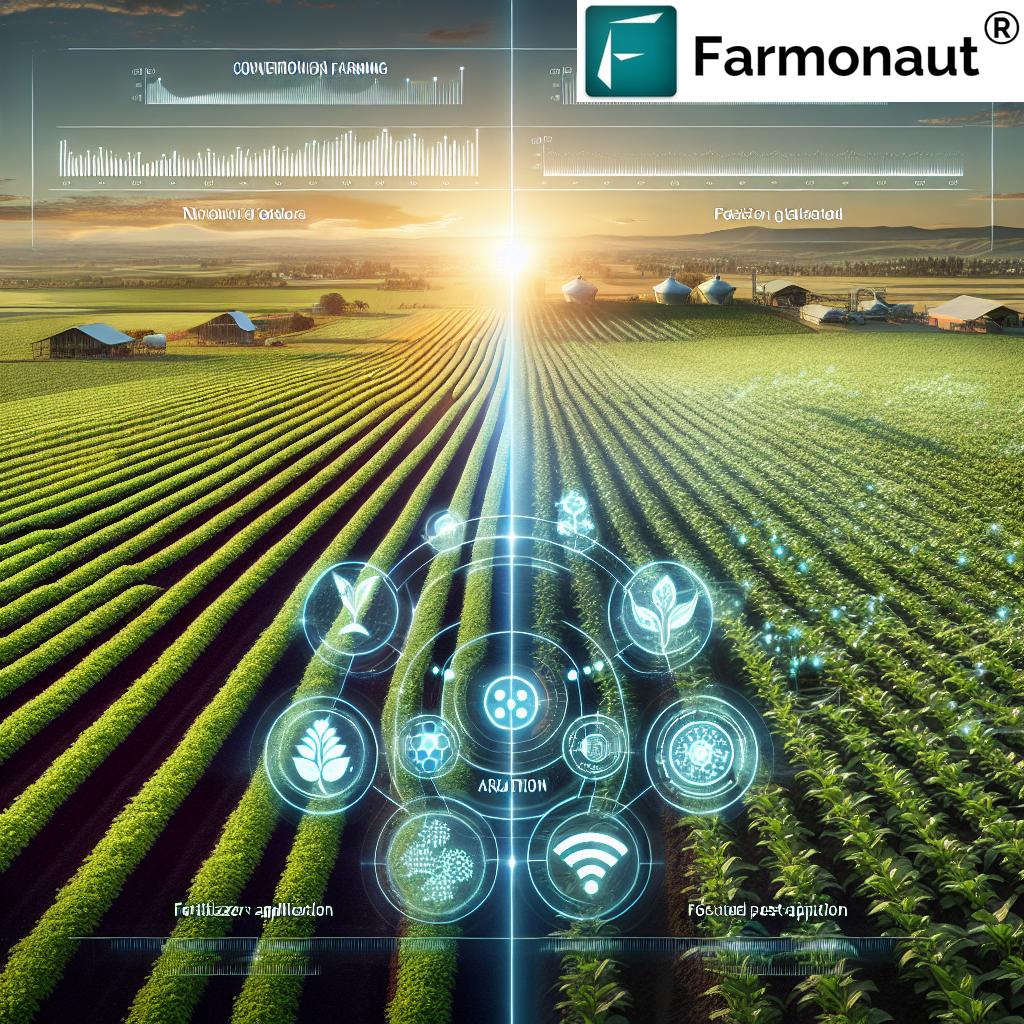
AI-Powered Pest Detection: Protecting Crops with Intelligence
One of the most promising applications of AI in agriculture is in pest detection and management. Traditional methods of pest control often involve broad-spectrum pesticide application, which can be both costly and environmentally harmful. AI-powered pest detection systems, however, can identify specific pest threats and their locations with remarkable accuracy.
These systems work by:
- Analyzing images from field cameras and drones
- Detecting subtle changes in plant health that may indicate pest activity
- Predicting pest outbreaks based on environmental conditions and historical data
- Recommending targeted interventions to minimize pesticide use
By employing AI for pest management, farmers in West Lafayette can protect their crops more effectively while reducing their reliance on chemical pesticides.
Sustainable Agriculture Practices: AI as an Eco-Friendly Tool
As the world grapples with climate change and environmental degradation, sustainable agriculture practices have become more critical than ever. AI and smart farm technology are proving to be powerful allies in the quest for more sustainable farming methods.
In West Lafayette, researchers are exploring how AI can contribute to sustainable agriculture by:
- Optimizing water use through intelligent irrigation systems
- Reducing chemical inputs by enabling precise, targeted applications
- Improving soil health through data-driven crop rotation and cover crop strategies
- Minimizing energy consumption in farm operations
By adopting these AI-driven sustainable practices, farmers can not only reduce their environmental footprint but also improve their long-term productivity and profitability.
Crop Monitoring Systems: The Watchful Eyes of AI
Advanced crop monitoring systems are transforming the way farmers in West Lafayette oversee their fields. These systems combine data from various sources, including:
- Satellite imagery
- Drone surveys
- Ground-based sensors
- Weather stations
AI algorithms process this data to provide a comprehensive view of crop health and development. Farmers can access real-time information on:
- Crop growth stages
- Stress indicators
- Potential yield estimates
- Disease and pest risks
This level of monitoring allows for proactive management, enabling farmers to address issues before they become serious problems.
The Role of Farmonaut in the Agricultural Revolution
In the midst of this technological transformation, companies like Farmonaut are playing a crucial role in bringing AI and smart farming solutions to farmers worldwide. Farmonaut offers a comprehensive suite of tools that leverage satellite technology, AI, and blockchain to address the diverse needs of modern agriculture.
Some of Farmonaut’s key offerings include:
- Satellite-based crop health monitoring
- AI-driven personalized farm advisory
- Blockchain-based product traceability
- Fleet and resource management tools
- Carbon footprint tracking
These solutions align perfectly with the advancements being made in West Lafayette and other agricultural hubs around the world.
Explore Farmonaut’s innovative solutions:
The Future of Farming: AI at the Forefront
As we look to the future of farming in West Lafayette and beyond, it’s clear that AI will play an increasingly central role. Professor Love predicts that by “2030, 2030s, where you start seeing these sensors take off,” we’ll witness a dramatic shift in how farms operate.
The benefits of this AI-driven revolution are manifold:
- Increased crop yields
- Improved food quality
- Reduced environmental impact
- Enhanced farmer decision-making
- Greater resilience to climate change
However, the adoption of these technologies will require ongoing education and support for farmers. As Buckmaster notes, “On the other hand, any time you could improve a decision, or make your decision a little easier with better confidence then I think they’re going to find it useful.”
AI-Powered Smart Farming Technologies and Their Benefits
| Agricultural Practice | Traditional Method | AI-Enhanced Method |
|---|---|---|
| Soil Monitoring | Manual soil testing, infrequent | Real-time monitoring with smart sensors, continuous data collection |
| Irrigation | Scheduled watering, often uniform across fields | Precision irrigation based on real-time soil moisture data and weather forecasts |
| Pest Detection | Visual inspection, reactive approach | AI-powered image analysis for early detection, predictive pest management |
| Crop Yield Prediction | Based on historical data and farmer experience | Machine learning models using multiple data sources for accurate yield forecasting |
| Fertilizer Application | Uniform application across fields | Variable rate application based on AI analysis of soil nutrient levels |
The Environmental Impact of AI in Agriculture
One of the most significant benefits of AI-driven agriculture is its potential to reduce the environmental impact of farming. By enabling more precise application of inputs like water, fertilizers, and pesticides, AI can help minimize waste and reduce the pollution associated with agricultural runoff.
Moreover, by optimizing resource use, AI can contribute to:
- Reduced greenhouse gas emissions from farm equipment
- Improved soil health and carbon sequestration
- Conservation of water resources
- Preservation of biodiversity through reduced chemical use
As we face the challenges of climate change, these environmental benefits make AI an essential tool for sustainable agriculture.
Challenges and Considerations
While the potential of AI in agriculture is immense, there are challenges to overcome:
- Initial costs of implementing AI and smart sensor systems
- Need for reliable internet connectivity in rural areas
- Data privacy and security concerns
- Ensuring AI systems are accessible to small and medium-sized farms
- Addressing potential job displacement in the agricultural sector
Addressing these challenges will be crucial for the widespread adoption of AI in agriculture.
The Role of Education and Training
As AI and smart sensors become more prevalent in farming, there’s a growing need for education and training programs. Universities like Purdue are at the forefront of this effort, developing curricula that combine traditional agricultural knowledge with cutting-edge technology skills.
Key areas of focus include:
- Data analysis and interpretation
- AI and machine learning fundamentals
- Precision agriculture techniques
- Sustainable farming practices
- Technology integration in farm management
By equipping the next generation of farmers with these skills, we can ensure that the benefits of AI in agriculture are fully realized.
Conclusion: A New Era of Smart Farming
The agricultural revolution unfolding in West Lafayette, Indiana, is a microcosm of the changes happening in farms across the globe. AI and smart sensors are not just improving efficiency; they’re transforming the very nature of farming. As we look to the future, it’s clear that these technologies will play a crucial role in meeting the world’s growing food demands while preserving our planet’s resources.
The journey towards fully AI-integrated farming is just beginning, but the potential is enormous. From increased yields and reduced environmental impact to more sustainable and resilient agricultural systems, the benefits are clear. As researchers, farmers, and technology companies continue to innovate, we can look forward to a future where farming is smarter, more efficient, and more in harmony with the environment.
FAQ Section
Q: How does AI improve crop management?
A: AI analyzes data from smart sensors to provide real-time insights on crop health, soil conditions, and pest threats, enabling more precise and efficient farming practices.
Q: What are the environmental benefits of AI in agriculture?
A: AI helps reduce the use of water, fertilizers, and pesticides through precision application, leading to less environmental impact and more sustainable farming practices.
Q: How can farmers in West Lafayette access AI farming technologies?
A: Farmers can partner with Purdue University research programs or explore commercial solutions like Farmonaut that offer AI-powered agricultural tools.
Q: What challenges do farmers face in adopting AI technologies?
A: Challenges include initial costs, the need for reliable internet connectivity, data privacy concerns, and the learning curve associated with new technologies.
Q: How does AI contribute to sustainable agriculture?
A: AI optimizes resource use, reduces chemical inputs, improves soil health, and helps farmers make more environmentally friendly decisions based on data-driven insights.
Earn With Farmonaut: Affiliate Program
Earn 20% recurring commission with Farmonaut’s affiliate program by sharing your promo code and helping farmers save 10%. Onboard 10 Elite farmers monthly to earn a minimum of $148,000 annually—start now and grow your income!
As we conclude our exploration of AI and smart sensors in agriculture, it’s clear that we’re on the brink of a farming revolution. The innovations coming out of West Lafayette and other agricultural technology hubs are set to transform how we grow food, manage resources, and interact with our environment. By embracing these technologies, we can look forward to a future where farming is not only more productive but also more sustainable and in harmony with nature.








